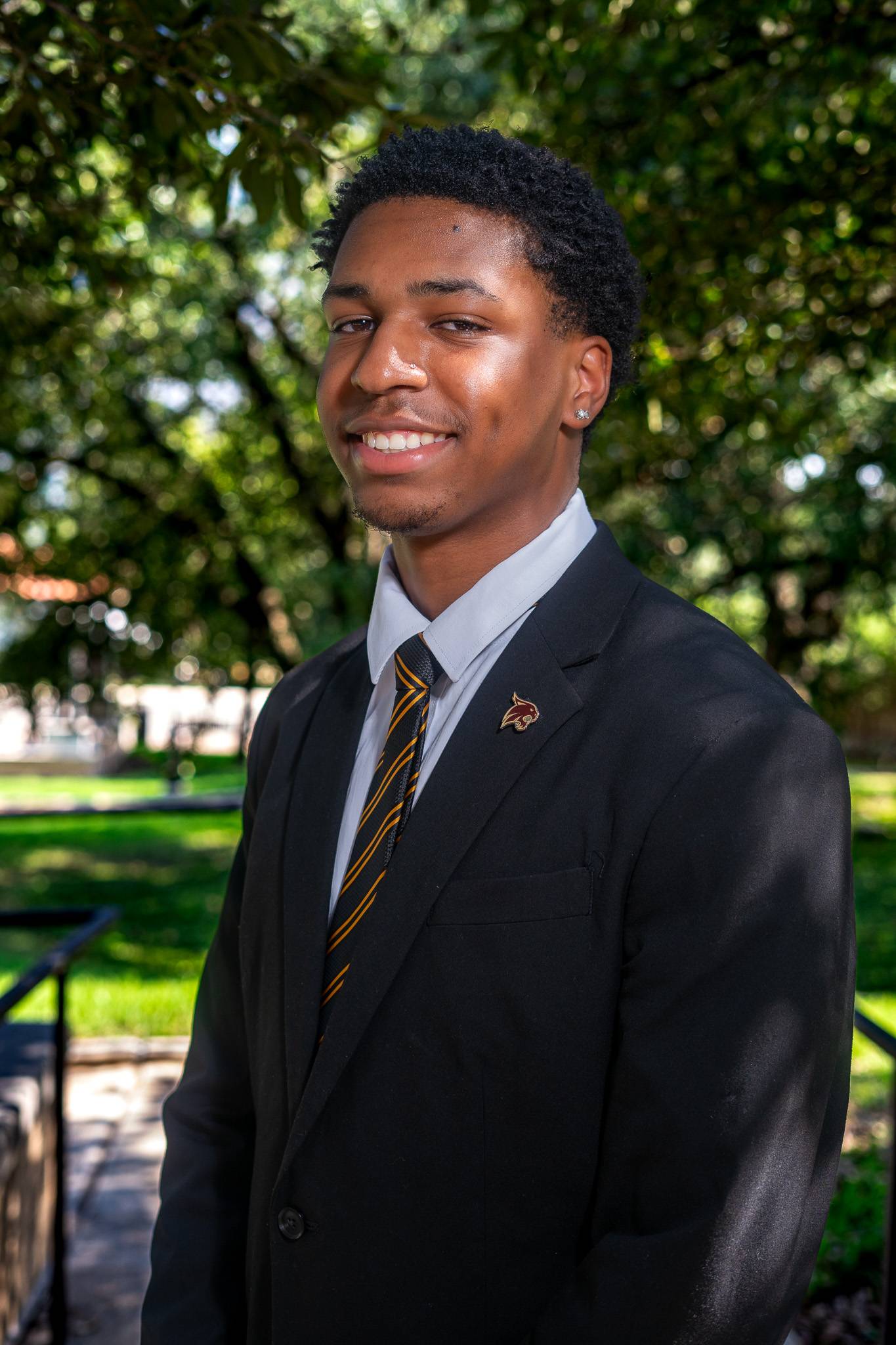Sponsored by Campus Compact, the Newman Civic Fellowship recognizes student leaders who demonstrate a strong commitment to civic engagement and public leadership. Through service, research and advocacy, Fellows work to create positive long-term impact while deepening their understanding of themselves, their communities, and the systems that drive lasting social change.
Each year, Texas State University has the privilege of nominating one student to represent our institution on a national level through the Newman Civic Fellowship. Sponsored through Campus Compact, is a year-long fellowship that recognizes and supports community-committed students who showcase the potential for public leadership and creating long-term social change, take action in addressing issues of political polarization, and demonstrate the motivation and potential for long-term civic engagement.
Throughout the fellowship term, students are provided with opportunities that nurture their assets and help them develop strategies for making positive change in their communities, including creating a network of Fellows who can support one another in creating lasting impact. Other opportunities and unique benefits include the following:
- Virtual learning events focused on skill development and professional learning
- One-on-one leadership development with a campus mentor of the Fellow's choice
- Special, exclusive scholarship or grant opportunities
- Opportunities to present and publish work or research through Campus Compact
- An in-person conference covered by Leadership & Service, the Annual Convening of Fellows
Eligibility
Fellows are nominated by the president or chancellor based on their potential for public leadership and their work with communities. Nominees must fulfill the following requirements:
- Be a currently enrolled undergraduate or graduate student. Preference given to undergraduate students.
- Have at least one academic year remaining
- Commit to participating fully in fellowship activities through Campus Compact
Students graduating before the end of the fellowship term can not be considered or hold the role.
Meet our 2025-2026 Newman Civic Fellow!
Kaison Ward, Class of 2026

“My civic leadership journey was inspired by my desire to uplift marginalized communities and foster inclusivity. Growing up, I witnessed firsthand the challenges faced by underrepresented groups, which sparked my passion for advocacy and service. This drive has guided my involvement in multiple leadership roles, including serving as President of the Black Presidents' Council, Engagement Chair of Black Student Alliance, and Director of Educational Activities for Alpha Phi Alpha Fraternity, Inc. Through these positions, I have worked to address systemic issues such as underrepresentation, educational inequality, and the lack of resources for students of color. My efforts have focused on building capacity for student organizations, fostering unity, and creating spaces for Black students to thrive academically and socially. I believe that real change comes from empowering communities and addressing root causes, not just symptoms. My journey continues to be fueled by the belief that leadership is not just about holding titles but about using those platforms to create tangible, lasting impact. By leading service initiatives, organizing community events, and mentoring others, I strive to leave a legacy of empowerment and equity.”
Kaison Ward